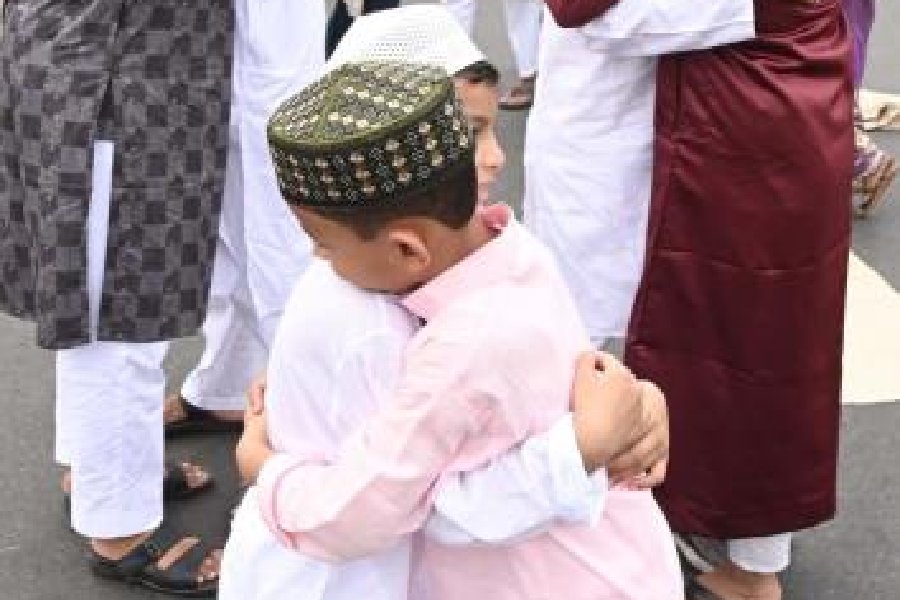A garment trader in Howrah celebrated Eid by distributing desserts in his entire neighbourhood.
His children and family members took sweets and falooda — made of vermicelli, jelly, rose syrup, milk and ice cream — to his neighbours’ homes.
The house next to his belongs to a Christian family. The house next is that of a Hindu family.
“I feel having a cordial relationship with your neighbours is all the more important in today’s India. My children went to the neighbours’ homes with some sweets and falooda, something that is not easily available in our locality. I believe it is a very simple gesture to strengthen the bond between neighbours,” said Sk Hyder Ali, 61, who lives in the Sultanpur area in Howrah’s Santragachhi.
Ali’s gesture encapsulated the spirit of Eid celebrations in and around Kolkata.
Ali had ordered more than 150 glasses of falooda for Eid. He had them sent to the sisters of the nearby St Mary’s Convent School, the priest of a local church, the imam of the local mosque and the secretary of the local temple committee.
“Our neighbourhood is like a mini-India. On the occasion of Eid, we should vow to cherish the amity and brotherhood that is ingrained in India,” said Ali, also the general secretary of the Deeniyat Muallima College in Howrah’s Santragachhi.
Barely 15km away, the same camaraderie was visible in Chitpore, where hugs and handshakes followed the Eid prayers at Nakhoda Masjid. The prayers began at 6.30am. A little after 8.30am, on Red Road, tens of thousands bowed their heads in prayer.
The day was marked by camaraderie — as people visited the homes of friends and relatives — as well as benevolence and charity.
Zeeshan Majeed, a social worker, attended the Eid prayers at a mosque near his Beckbagan home before visiting his sisters with gifts and sweets.
On his way back, he spent an hour with underprivileged people — mostly pavement dwellers and people who live under the Sealdah flyover — near the NRS Medical College and Hospital.
He got two large cakes — strawberry and vanilla — from a reputable Park Street confectioner. He cut the cakes and distributed them among the people, mostly strangers.
Majeed is the founder of the Anti-Hunger Foundation, a campaign that regularly feeds poor people in and around Sealdah.
“Eid means sharing happiness with everyone. I visited my relatives’ homes in the morning. These people (pavement dwellers and those who live under the Sealdah flyover) are like my relatives. So, I stopped by,” said Majeed.
New clothes formed a bulk of the Eid gifts. But some chose books as Eidi.
An online campaign called Eid Boi Mela Parishad, launched three weeks ago, has generated traction. The campaign asked people to give books as Eid gifts to students. The aim is to inculcate the habit of reading in the younger generation.
“Everyone gives clothes and money as Eidi. Eid is a universal festival. It is a festival of consciousness. Books are the best way to consciousness,” said Wyahed Mirza, a social worker in East Midnapore, who is the driving force behind the campaign.
The online group has over 200 members. More than 500 books have already been distributed across East Midnapore, Malda, Murshidabad and several other districts.
As part of the campaign, Know Your Neighbour, a social initiative aimed at promoting interfaith dialogues and social harmony, distributed 110 English-to-Bengali dictionaries among students of Classes IX to XII in Kidderpore, Mominpore and nearby areas.
